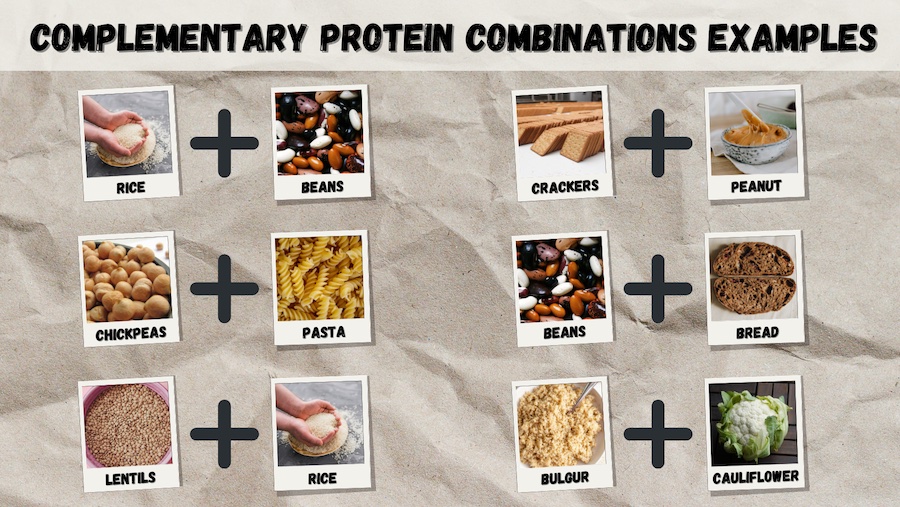As people become increasingly conscious of the impact their food choices have on the environment as well as their health, more and more individuals are turning to plant-based diets.
The trend shows no signs of slowing down, with a growing number of people adopting a vegetarian or vegan lifestyle. However, it’s important to understand that transitioning to a plant-based diet requires careful consideration and planning to ensure that all nutritional needs are met, especially for those who lead an active lifestyle.
Protein plays a crucial role in any diet, and the plant-based one is no exception. They are essential for building and repairing tissues, synthesising hormones and enzymes, and providing energy. They are made up of amino acids, including nine that are considered essential because our bodies cannot produce them on their own. It’s important to consume protein-rich foods that contain all of the essential amino acids to ensure optimal health.
Selecting the right protein-rich foods and combinations
But where do you get your protein when you’re not eating meat? The good news is that plants offer plenty of protein sources, such as legumes, tofu, tempeh, nuts, seeds, and whole grains. Unfortunately, only a few plant-based foods contain all the nine essential amino acids such as quinoa, buckwheat, soybeans, or hemp seeds.
However, while it’s true that plant-based proteins may not contain all the essential amino acids in the same proportion as animal proteins, it is possible to combine different protein sources to obtain all the essential amino acids you need.
For instance, combining legumes with grains, such as beans and rice, or lentil soup with bread, can provide a complete protein source. Other pairings include hummus with whole grain pita, quinoa with roasted vegetables, or tofu stir-fry with brown rice.
Additionally, incorporating nuts, seeds, and nut butters into meals and snacks can also provide a good source of protein. For example, adding chia seeds to a smoothie or topping a salad with pumpkin seeds can boost protein intake.
With a little bit of planning and creativity, it’s easy to enjoy a variety of plant-based meals. It’s important to keep in mind that you don’t have to eat complementary proteins at the same meal, your body can store amino acids and use them as needed throughout the day. However, they often taste great together in the same meal.
How the body processes protein
Now, let’s talk about absorption and utilisation. Some plant-based proteins are less bioavailable (harder for the protein to be utilised by the body) than animal proteins, but this does not mean they are inferior. You can improve the absorption and utilisation of plant-based proteins through different food processing techniques which reduce some of the antinutrients (compounds that decrease the absorption of other nutrients) present in plants. For example, fermentation, soaking, and germination can help lower their levels, thereby improving protein digestibility and bioavailability.
But what about fibres? Won’t eating too much fibre cause digestive issues? It is true that some people may experience gastrointestinal discomfort if they increase their fibre intake too quickly. However, it’s important to note that fibre is essential for gut health, and your body can adapt to higher fibre intake over time. To avoid digestive issues, it is best to gradually increase your fibre intake over time – consulting a nutritionist can be beneficial for transitioning to a plant-based diet.
It’s all about balance
Food quantities and balance are also important factors to consider. If you are physically active, you will need more calories and nutrients than if you’re sedentary. It is important to choose a variety of foods and balance your meals with protein, healthy fats, complex carbohydrates, as well as plenty of fruits and vegetables.
Transitioning to a plant-based diet doesn’t need to be intimidating, shaping a plant-based diet that supports an active or sedentary lifestyle is easily achievable with some good knowledge and proper planning. Don’t be afraid to experiment with new foods and combinations – eating plant-based can be both delicious and nutritious, and it’s a great way to support the environment and your health.
SEE ALSO:
NEW NUTRITION SERIES: THE BENEFITS OF IRON FOR FITNESS, HEALTH, AND WELLBEING
Tristan Boetti is a sports nutritionist. Through his company Performance & Bien-Être Monaco, he works with professional athletes as well as recreationally active individuals to help them achieve their goals through customised nutrition plans and expert advice.

